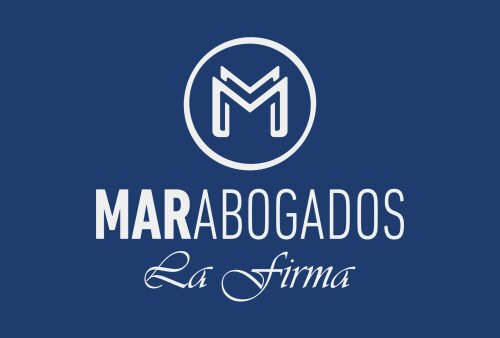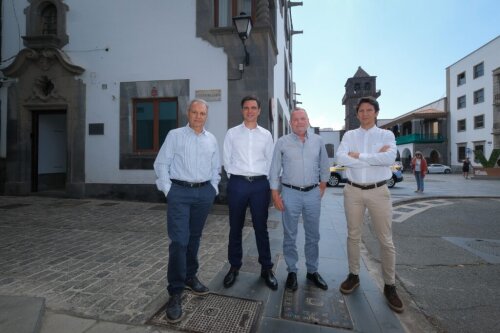Best Juvenile Law Lawyers in Las Palmas de Gran Canaria
Share your needs with us, get contacted by law firms.
Free. Takes 2 min.
List of the best lawyers in Las Palmas de Gran Canaria, Spain
About Juvenile Law in Las Palmas de Gran Canaria, Spain
Juvenile Law in Las Palmas de Gran Canaria is a specialized branch of law that addresses legal matters involving minors, focusing on individuals under the age of 18 who are accused of committing crimes or are in need of protection and care. The Spanish juvenile justice system is designed to prioritize the education, rehabilitation, and reintegration of minors rather than imposing punitive measures. In Las Palmas de Gran Canaria, these laws are applied in accordance with national legislation, mainly the "Ley Orgánica 5/2000, de 12 de enero," which governs criminal responsibility for minors across Spain.
The city is served by dedicated juvenile courts, and there are specific procedures and protections in place to ensure that minors' rights are fully protected throughout legal processes. In addition to criminal issues, Juvenile Law can also address matters of child welfare, guardianship, and family conflicts.
Why You May Need a Lawyer
There are various situations involving minors in which legal advice or representation is crucial. Some common reasons why you may need a juvenile law lawyer in Las Palmas de Gran Canaria include:
- Your child has been accused of a crime or misdemeanor, and you need to navigate the juvenile justice system.
- You want to appeal a decision made by the authorities regarding the custody or guardianship of a minor.
- Intervention by child protective services due to concerns about a minor's safety or welfare.
- Cases involving truancy, absent parental care, or child abandonment.
- Issues relating to adoption or foster care arrangements.
- Minors who have been victims of abuse, exploitation, or neglect.
- Family disputes that have legal ramifications for children, such as divorce or residence agreements.
A lawyer specializing in juvenile law can provide crucial guidance, protect a minor's legal rights, and help achieve the best possible outcome with the authorities and judicial system.
Local Laws Overview
The main piece of legislation governing Juvenile Law in Las Palmas de Gran Canaria is the "Ley Orgánica 5/2000" on criminal responsibility of minors. Some key aspects of the local application of these laws include:
- Minors under 14 years old cannot be held criminally responsible, though protective or social intervention measures can be taken if necessary.
- For minors aged 14 to 17, special procedures apply that are designed to avoid punitive incarceration and emphasize educational or rehabilitative measures, such as community service or supervised freedom.
- There are dedicated juvenile courts (Juzgados de Menores) for handling these cases, separate from adult criminal courts.
- The law grants additional privacy and protection to minors throughout proceedings, including closed hearings and the right to legal assistance at all times.
- Social services work closely with the legal system to propose measures tailored to each minor’s needs and circumstances.
- For non-criminal matters, such as custody or welfare, the interventions may involve family courts or social protection agencies.
Overall, the system in Las Palmas de Gran Canaria strives to be restorative rather than punitive, aiming to reintegrate minors into society and support their development.
Frequently Asked Questions
What age defines a minor under Juvenile Law in Spain?
A minor is anyone under 18 years old, but criminal responsibility begins at age 14. Children under 14 are not criminally responsible.
Can a minor go to jail in Las Palmas de Gran Canaria?
Minors under 18 generally do not serve time in adult jails. If necessary, they might be detained in specialized juvenile facilities as a last resort and for limited periods, focusing on rehabilitation rather than punishment.
What are the main penalties for minors who commit crimes?
Typical measures include community service, supervised education, therapeutic programs, probation, or placement in juvenile centers. The focus is always on education and social reintegration.
Do minors have the right to a lawyer?
Yes, every minor has the right to legal assistance during proceedings. The presence of a lawyer is mandatory, and if a family cannot afford one, a court-appointed attorney is provided.
Are juvenile court records public?
No, records from juvenile court proceedings are confidential to protect the privacy and future prospects of minors.
How do authorities deal with minors in need of protection?
If a minor is in danger or suffers neglect or abuse, child protection services may intervene, offer assistance, and sometimes seek temporary or permanent changes in custody.
Will a crime committed as a minor affect adult criminal records?
Records of crimes committed as minors are generally kept separate and are not public or carried over into adult records, except in very serious cases.
What should parents do if their child is arrested?
Parents should contact a juvenile law lawyer immediately. The minor must be accompanied by legal counsel and informed of their rights before any questioning.
How are repeat offenses by minors handled?
Repeat offenses are taken seriously, and the measures applied may escalate. However, rehabilitation and reintegration remain the goals, with additional support or interventions as needed.
Can a minor refuse to testify?
Minors have specific legal protections, including the right not to testify against themselves, and they can exercise this right with the help of their lawyer.
Additional Resources
If you need further information or assistance, consider these resources:
- Juzgado de Menores (Juvenile Court) in Las Palmas de Gran Canaria - Handles all cases related to juvenile offenses and protective proceedings.
- Ilustre Colegio de Abogados de Las Palmas (ICAP) - The local Bar Association can provide information on finding specialized juvenile lawyers.
- Servicio de Protección de Menores - The child protection service of the Canary Islands government, responsible for welfare and safeguarding issues.
- Fiscalía de Menores - The Juvenile Prosecutor’s Office - Ensures the legal protection of minors and oversees juvenile criminal procedures.
- Ayuntamiento de Las Palmas de Gran Canaria - Offers social services and family assistance for residents.
Next Steps
If you are facing a legal issue related to Juvenile Law in Las Palmas de Gran Canaria, the following steps can guide your process:
- Gather all relevant information and documents relating to the minor and the case (identity, circumstances, official notices).
- Contact a lawyer who specializes in Juvenile Law. If you do not have a lawyer, you can request a court-appointed attorney through the Bar Association.
- Follow legal instructions carefully, ensuring the minor is represented and their rights are protected at all stages.
- Attend all required appointments with authorities, courts, or social services, as directed.
- Make use of local resources and support services for additional help, guidance, or social intervention.
- Stay informed of all developments in the case and communicate regularly with your legal representative.
Taking swift and informed action is key to ensuring the best possible outcome for the minor involved. Professional legal representation is crucial to navigate the complexities of Juvenile Law in Las Palmas de Gran Canaria.
Lawzana helps you find the best lawyers and law firms in Las Palmas de Gran Canaria through a curated and pre-screened list of qualified legal professionals. Our platform offers rankings and detailed profiles of attorneys and law firms, allowing you to compare based on practice areas, including Juvenile Law, experience, and client feedback.
Each profile includes a description of the firm's areas of practice, client reviews, team members and partners, year of establishment, spoken languages, office locations, contact information, social media presence, and any published articles or resources. Most firms on our platform speak English and are experienced in both local and international legal matters.
Get a quote from top-rated law firms in Las Palmas de Gran Canaria, Spain — quickly, securely, and without unnecessary hassle.
Disclaimer:
The information provided on this page is for general informational purposes only and does not constitute legal advice. While we strive to ensure the accuracy and relevance of the content, legal information may change over time, and interpretations of the law can vary. You should always consult with a qualified legal professional for advice specific to your situation.
We disclaim all liability for actions taken or not taken based on the content of this page. If you believe any information is incorrect or outdated, please contact us, and we will review and update it where appropriate.











